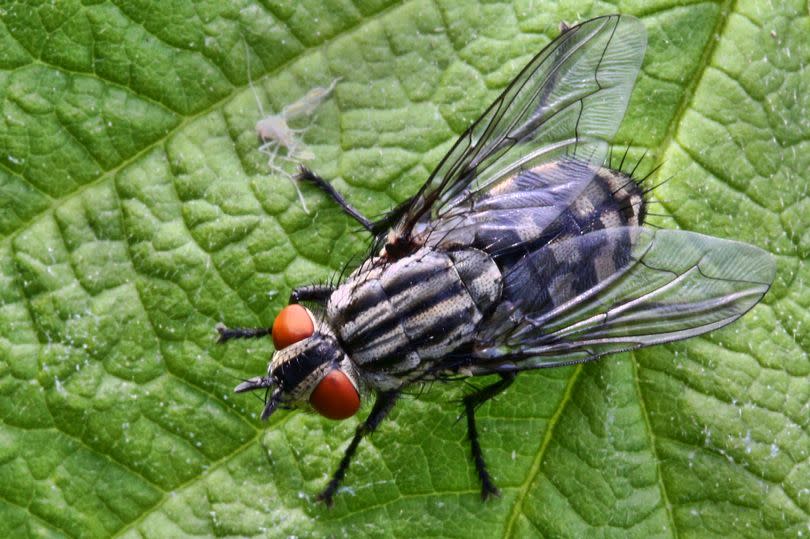How to get rid of house flies and keep them away during the hot weather

As temperatures soar, residents are resorting to age-old tactics like flinging windows and doors open, desperate for a breeze in their sweltering homes. Yet, this invites an all-too-familiar nuisance: the relentless hum of house flies.
These pesky intruders typically breed in kitchen bins or amid decaying food, causing not just irritation with their incessant buzzing but also posing hygiene risks.
Battling these stubborn creatures might seem futile, but there are effective strategies to prevent them from taking over your living space. We delve into expert advice on maintaining a fly-free home during the warmer months.
READ MORE: DVLA could fine one million drivers for breaking vital licence rule
What makes our homes so appealing to flies?
Our abodes are hubs of activity, emitting a variety of odours that are particularly enticing to flies. The common house fly is drawn to decomposing materials such as excrement, animal waste, and spoiled meat, while fruit flies gravitate towards sweet substances like overripe fruits, spilled soft drinks, and alcoholic beverages.
Should we be worried about flies?
Generally, flies are more bothersome than harmful. Nevertheless, they are vectors for bacteria and pathogens, so it's wise to exercise caution if they land on any food you plan to consume.
The saying 'if you followed a fly for a day, you wouldn't eat for a week' holds true. Science World reports that house flies lack biting or chewing mouthparts.
Instead, when a fly alights on something, it "tastes" or detects chemical properties with its feet.
If a fly finds something appetising, it will regurgitate on it. The vomit of a fly contains digestive enzymes that break down the food, allowing the fly to extend its proboscis and use its sponge-like tongue (labellum) to soak up the resulting liquid.
The bacteria from the fly's gut can transmit diseases that it carries.
How can you prevent house flies?
Experts at the British Pest Control Association advise: "Unfortunately there's no secret tip or trick to preventing flies. We would recommend general good housekeeping to keep numbers down, good hygiene practices and prompt disposal of household waste will discourage flies."
"Ensure food is covered and any mess is promptly cleaned up. Fitting windows and doors with fly screens can help prevent their entry."
"Furthermore, dustbins should be placed away from doors and windows, have tight-fitting lids, and can be sprayed or dusted inside with a household insecticide in warm weather. Fly tape and spray will control any that are already in your home."
"But it's crucial to remember that any use of amateur insecticides should be done cautiously. Always read the label and follow the instructions, as this is the law."
Are there natural methods to eliminate house flies?
Natural remedies can be an excellent way to deter house flies without resorting to killing them. Essential oils, such as lemongrass or peppermint, are a great first step in keeping flies at bay.
A few drops of essential oil on a small cloth hung on doors and windows can deter flies. Alternatively, mint or fresh orange peel placed on window sills can also be effective.
Citrus scents are known to repel flies, making citronella candles a worthwhile investment for your home. Suitable for both indoor and outdoor use, these candles can keep flies at bay before they even enter your property.
But what if the house flies become an infestation?
Flies can indeed overrun a home, especially in hot weather when they seek out warm, moist environments to lay their eggs.
Fly eggs, resembling tiny grains of rice, typically hatch within 24 hours. The resulting larvae may look like small grubs or pale worms.
A female fly can lay over 500 eggs in her lifetime, usually in batches of between 75 and 150.
If a fly problem escalates, the BCPA recommends hiring a professional pest controller. "If an infestation becomes too large, then a professional pest controller would have the tools and knowledge to locate the root cause and deal with it safely and effectively - people can use bpca.org.uk/find to locate a trained, insured and regularly assessed pest controller."
Get all the latest and breaking news in Yorkshire by signing up to our newsletter here.

 Yahoo News
Yahoo News 
